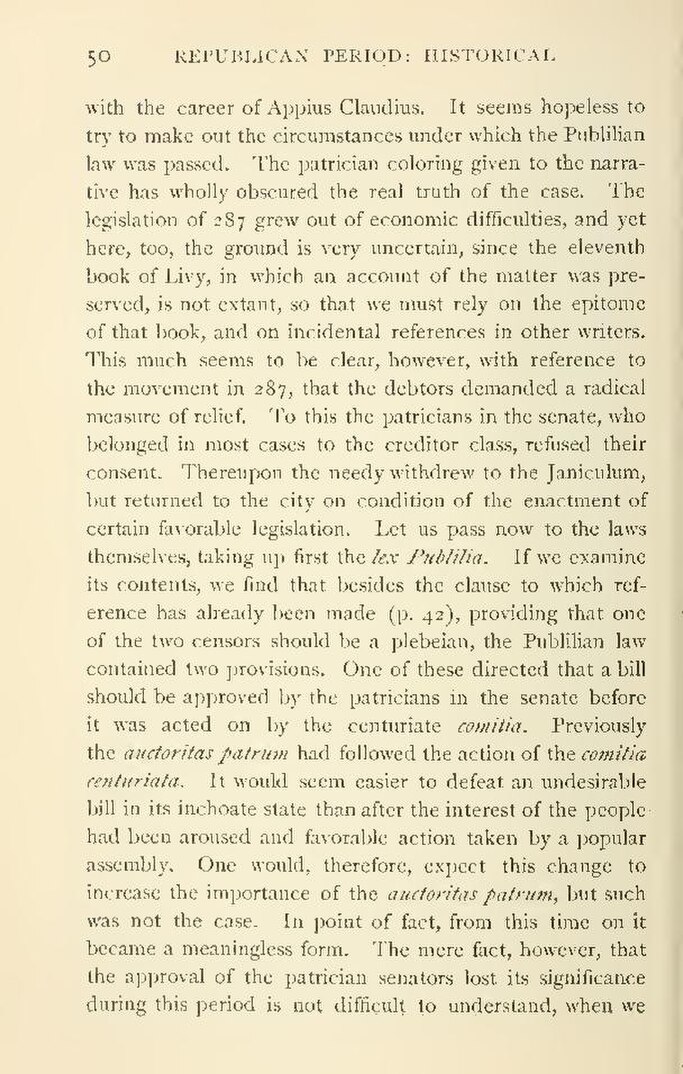with the career of Appius Claudius. It seems hopeless to try to make out the circumstances under which the Publilian law was passed. The patrician coloring given to the narrative has wholly obscured the real truth of the case. The legislation of 287 grew out of economic difficulties, and yet here, too, the ground is very uncertain, since the eleventh book of Livy, in which an account of the matter was preserved, is not extant, so that we must rely on the epitome of that book, and on incidental references in other writers. This much seems to be clear, however, with reference to the movement in 287, that the debtors demanded a radical measure of relief. To this the patricians in the senate, who belonged in most casesd to the creditor class, refused their consent. Thereupon the needy withdrew to the Janiculum, but returned to the city on condition of the enactment of certain favorable legislation. Let us pass now to the laws themselves, taking up first the lex Puplilia. If we examine its contents, we find that besides the clause to which reference has already been made (p. 42), providing that one of the two censors should be on a plebeian, the Publilian law contained two provisions. One of these directed that a bill should be approved by the patricians in the senate before it was acted on by the centuriate comitia. Previously the auctoritas patrum had followed the action of the comitia centuriata. It would seem easier to defeat an undesirable bill in its inchoate state than after the interest of the people had been aroused and favorable action taken by a popular assembly. One would, therefore, expect this change to increase the importance of the auctoritas patrum, but such was not the case. In point of face, from this time on it became a meaningless form. The mere fact, however, that the approval of the patrician senators lost its significance during this period is not difficult to understand, when we
